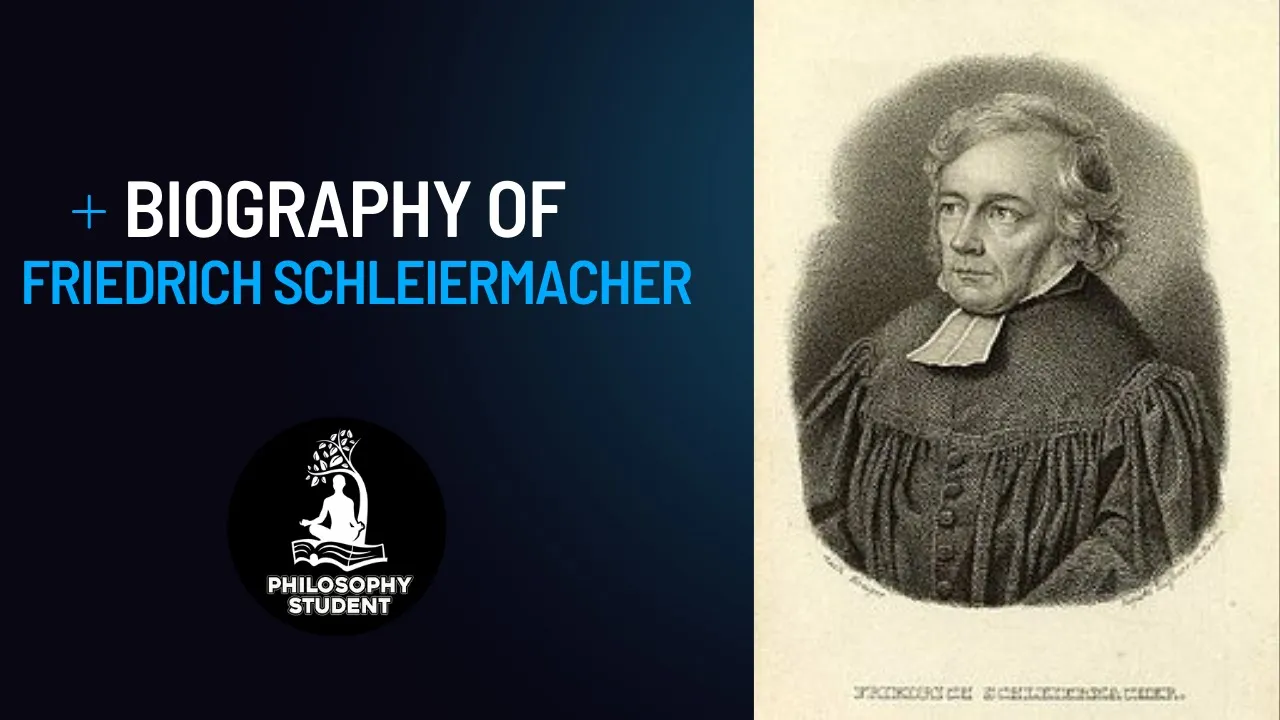Friedrich Daniel Ernst Schleiermacher was a theologian and philosopher who struggled to reconcile Protestantism with Enlightenment thought and effectively founded the modern field of hermeneutics, shifting away from traditional methods of interpreting biblical and classical texts to focusing, more philosophically and philologically, on how people understand texts.
Born on November 21, 1768 in Breslau, Germany, into the family of a clergyman of the reformed church, Schleiermacher was educated in schools of the Moravian Brethren (Herrnhuter) but enrolled in the far more liberal University of Halle in 1787 and studied theology, philosophy, and classical philology. After passing his theological examinations in 1790, he worked as a private tutor for a time and wrote critical essays on Kant, including “On the Highest Good” (1789), “On What Gives Value to Life” (1792–1793), and “On Freedom” (1790–1793). He also wrote on Spinoza, evolving a neo-Spinozistic monist philosophy, which would figure in his 1799 book devoted to the philosophy of religion, On Religion: Speeches to Its Cultured Despisers.
From 1794 to 1796, Schleiermacher was a pastor in Landsberg, moving to Berlin in 1796 to serve as a hospital chaplain. In this city, he met brothers Friedrich and August Wilhelm Schlegel and became interested in the developing romantic movement in German philosophy. He grew increasingly progressive, publishing in 1798 the quasi-feminist “Idea for a Catechism of Reason for Noble Ladies.” His fellow romantics encouraged his 1799 On Religion: Speeches to Its Cultured Despisers, which argued that the immortality of the soul and even the existence of God are inessential to religion, asserting further that the world offers an endless variety of equally valid forms of religion. He also openly advocated granting the Jews of Prussia full civil rights.
Schleiermacher embarked on the ambitious project of translating Plato’s dialogues, and the translations, which were published between 1804 and 1828, are widely considered masterpieces. In 1804, he began teaching at Halle University, earning more than local notoriety for his lectures on ethics and on hermeneutics. During the Napoleonic Wars, he left French-occupied Halle and, inspired by German nationalism, promoted resistance to the French occupation. He served as a preacher at the Dreifaltigkeitskirche during 1808-1809, was appointed professor of theology at the University of Berlin in 1810, and, the next year, was inducted into the Berlin Academy of Sciences.
The Academy served as a platform from which Schleiermacher lectured. His lectures on ethics, translation, dialectics, and Leibniz’s idea of a universal language were especially important. He published The Christian Faith in 1821-1822, a work of systematic theology. It was his last major book. He died of pneumonia on February 12, 1834.
Today, Schleiermacher is studied mostly for his philosophical works on language, hermeneutics, and translation. He believed language was social in nature and that language did not merely transcribe thought but actively infused it. Indeed, he identified thought closely with linguistic expression. He emphasized word usage, not the referents of words, as the core of linguistic meaning, and he stressed the importance of understanding language in terms of historical periods and cultures.
As a philosopher of mind, Schleiermacher argued for the dependence of mind on body and saw the mind as a force. He thus stood in opposition to Descartes. His theory of hermeneutics combined his conceptualization of language and mind, and he argued that thought is virtually identical with language and that meaning inheres in word usage. All interpretation is effectively an act of translation because there are profound linguistic and intellectual differences between people. Adherence to doctrine impedes rather than facilitates both interpretation and translation. Indeed, Schleiermacher argued that interpretation is a far more difficult task than is commonly assumed. Whereas the mass of people believe that understanding occurs as a matter of course, Schleiermacher contended that misunderstanding occurs as a matter of course. Understanding, therefore, cannot be assumed but must be actively sought and willed at every turn.
His hermeneutic process was grounded in distinguishing between the meaning of a text and the question of its truth. It is best to interpret a text without assuming its truth. Moreover, interpretation is contextual and requires a thorough knowledge of the historical period within which the text was composed. Interpretation is a coin with two sides—the linguistic and the psychological. Linguistic interpretation is concerned with what is shared in a language, whereas psychological interpretation focuses on what is distinctive to a particular author.
As varied as Schleiermacher’s intellectual interests were, it is liberalism that ultimately united them. Whether in theology or hermeneutics, Schleiermacher rejected absolutism and leavened all definitions with an appreciation of context. Often called the “Father of Modern Liberal Theology,” Schleiermacher was an early liberal voice in philosophy as well.




































